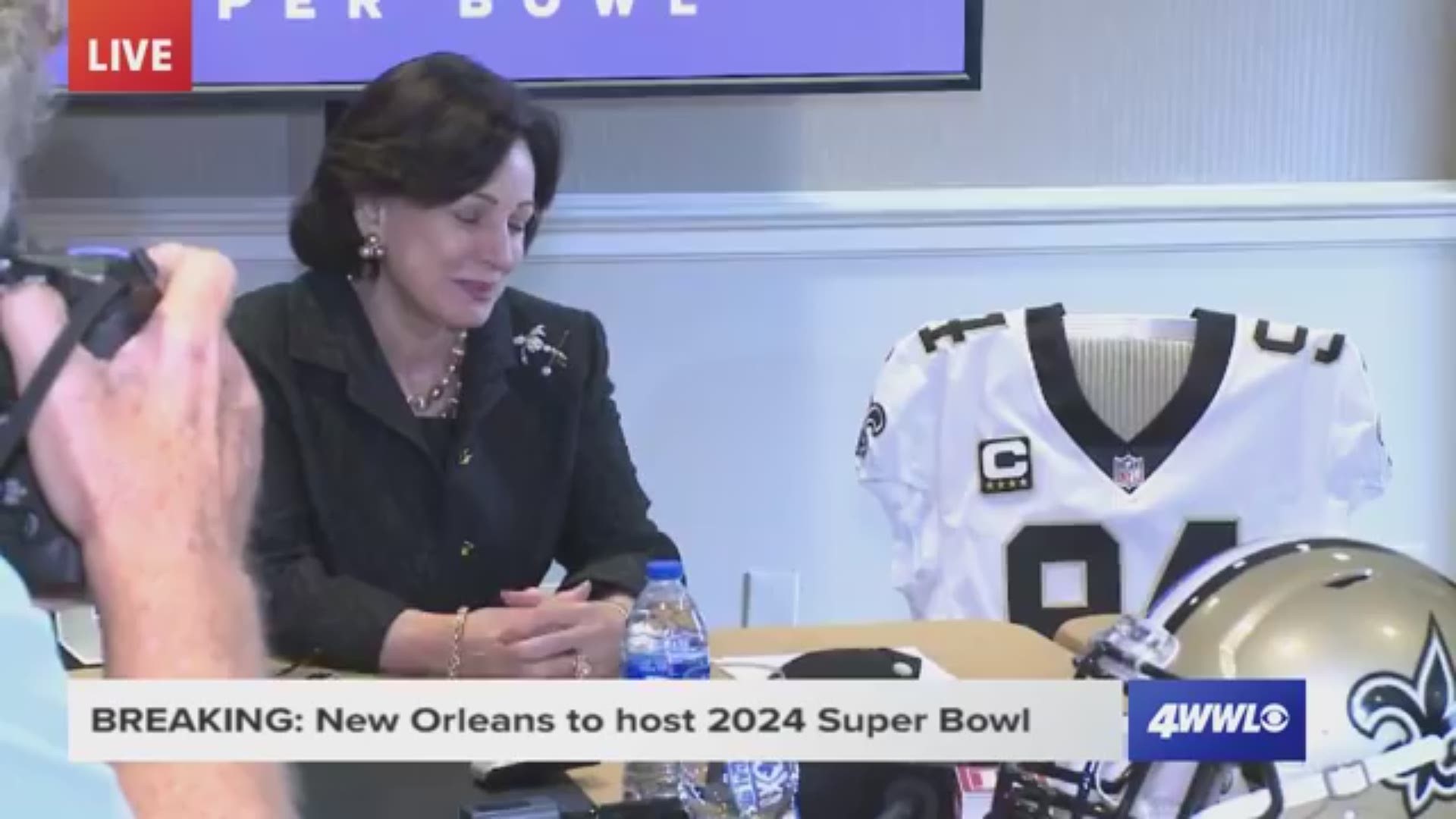NEW ORLEANS -- New Orleans is first-and-goal and close to scoring its record tying 11th Super Bowl in 2024.
"It's not a done deal by any means," New Orleans Sports Foundation President Jay Cicero said.
Saints owner Gayle Benson and team president Dennis Lauscha are preparing to make a final presentation to a panel of NFL owners this Wednesday in Atlanta.
"It is a single city pitch," Cicero said. "We're not bidding against a new stadium city or another city for 2024, So, it's a thumbs up, thumbs down for New Orleans."
The league now asks cities whether they would like to stage the game and are prepared to fulfill the league's hosting requirements.
Under the old system, cities competed against each other to host the Super Bowl.
"We've gone through two Super Bowl bids where we lost to new stadium cities," Cicero said. "Yes, a single city approach is favorable."
The big game is big money in the Big Easy.
The University of New Orleans estimated the economic impact in 2013, the last time the city hosted a Super Bowl was around $480 million.
New Orleans Hotel and Lodging Association Executive Director Mavis Early said the Super Bowl is the biggest of big deals for any city.
"It's great for the economy," Early said. "It's great for the reputation of our city. The exposure you get alone in the media is priceless."
Early added, New Orleans has added more than 1,000 new hotel rooms since the 2013 game.
"We have more hotel rooms now," Early said. "We know how to do this. We've had ten Super Bowls before."
The big game is also a boom for small businesses and minority and women owned businesses.
Diane Lyons is president of Accent New Orleans, a full service event management business.
Her company worked the last 7 Super Bowls in New Orleans.
"We hired lots of caterers, buses and valet parking and Super Bowl stretches out to everyone in New Orleans when it's here," Lyons said.
Cicero maintains the economic impact has risen since the 2013 game.
"You'd have to think it would be even bigger in 2024," Cicero said.
The 2024 Super Bowl would hit right in the middle of the Mardi Gras celebration like it has the previous two times New Orleans hosted the big game.
That means some Carnival parades and other events would be staged a week early to accommodate the Super Bowl.

